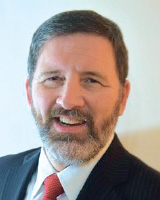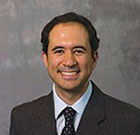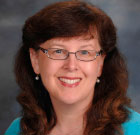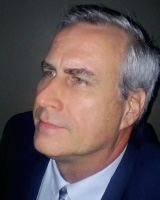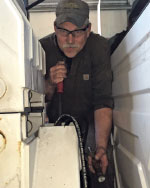Profile: Sam Kaye, CFPMIH, CFPMM, CFPMMH, CFPMT, CFPS
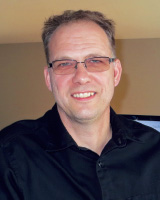
How did you get started in the fluid power industry?
In 2001, I had three kids—and three jobs. A hydraulic shop in Alberta had an opening for a shop hand. It was a good opportunity with better pay, so I took the job. I stayed there for the next seven years, progressing from shop hand to assistant manager.
What have you gained, personally and professionally, from your involvement in the IFPS?
I had an opportunity to attend an IFPS meeting in 2012 and was so impressed by the passion and dedication of everyone involved that I have gone to every meeting since then. The meetings are where the ideas for promoting the application of fluid power technology are born, and these ideas are realized by the continuous efforts of this dedicated group. It’s a great feeling to be an active part of the advancement of fluid power on an international scale. I have gained many friends from all facets of the industry, and we reach out to each other for expertise in areas we find challenging. The diversity is remarkable, with conversations ranging from submarines to airplanes and drilling rigs to amusement rides.
How has achieving IFPS certification helped your career?
By 2005, I was working on circuit design and troubleshooting, and realized that this was not just a job, but instead a career that I loved and could expand as far as I wanted to. I had a good knowledge of fluid power, but so did a lot of other guys at the company. I needed to stand out in order to move forward, and the certification offered by the IFPS was exactly what I was looking for. I began studying for the Hydraulic Specialist exam and became certified in the fall of 2005. Doors opened immediately and have never stopped opening. There is a huge difference between someone applying for a position stating that they have knowledge and someone applying for a position proving that they have knowledge.
What have you learned so far by working in the fluid power industry?
I’ve learned that you can do almost anything with fluid power. It is such a versatile mode of power transfer that it is hard to think of an industry that doesn’t use fluid power in some way. Each application is unique and presents challenges that can be overcome with equally unique solutions. I never have the same day twice working with fluid power.
Where do you see the fluid power industry heading in the next 10 years?
The advancement of fluid power technology, efficiency, and reliability over the past decade is remarkable, and I anticipate the next 10 years will be equally progressive. The sophistication of today’s fluid power systems demands highly qualified people in areas of design and maintenance. Industry leaders have recognized this demand and are focusing more attention on training and certification specific to fluid power. I believe we will see a significant increase in formal training over the next decade.
What advice would you give someone just starting out in the industry?
Take advantage of every opportunity you have to work on fluid power systems. There is no substitute for experience, and your experience (good and bad) will lead to questions—and answers. Get certified as soon as you are ready; it will open doors that would otherwise have remained closed.
What are some of your hobbies and interests?
I enjoy traveling with my beautiful wife and getting off the beaten path until we are completely lost.
Sam Kaye can be reached at sam.kaye@ensignenergy.com.

